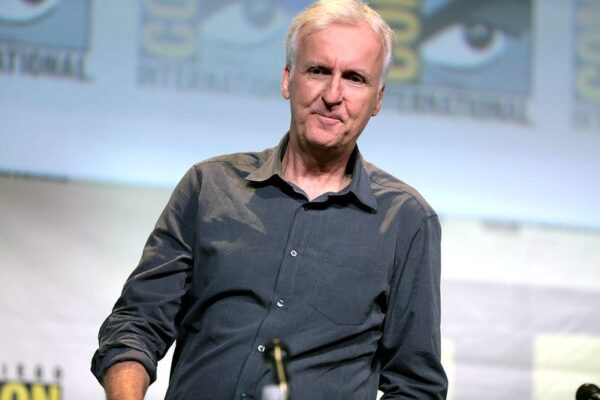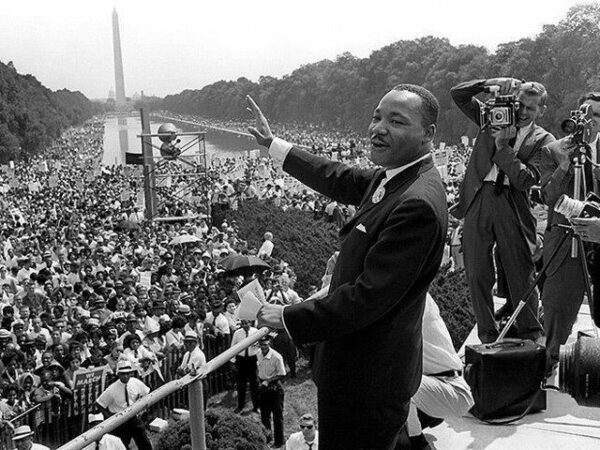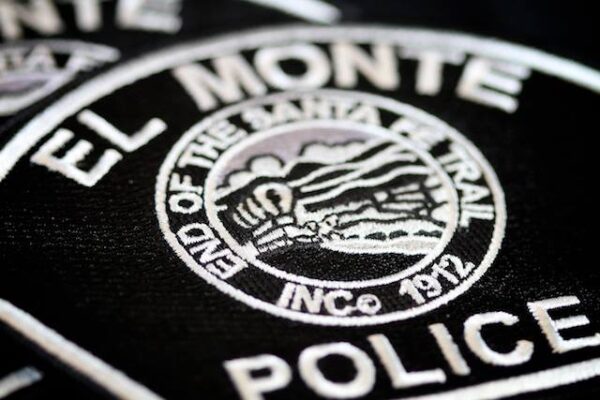James Cameron and his producing partner Jon Landau put their handprints and footprints in cement in the forecourt of the TCL Chinese Theatre IMAX on Thursday, honoring their work on “Titanic,” “Avatar” and “Avatar: The Way of Water.”
The ceremony was originally scheduled for Dec. 15, one day before the release of “Avatar: The Way of Water,” but it was postponed after it was announced that Cameron tested positive for COVID-19.
“It’s certainly a dream come true to be here at what I think of as this temple, this shrine … to the movies,” Cameron said at the ceremony.
He added that the Chinese Theatre “is the single highest-grossing screen in America for our film, ‘Avatar: The Way of Water,’ so we’re very proud of that.”
Cameron and Landau received Oscars in 1998 when “Titanic” was the best picture winner, with Cameron also winning for best director and being part of “Titanic’s” three-man editing team.
Cameron also received a best director nomination in 2010 for “Avatar,” but lost to his former wife, Kathryn Bigelow, who directed “The Hurt Locker,” which beat out a field that included “Avatar” for best picture. Cameron was also part of “Avatar’s” editing team which received a nomination, but which lost to Bob Murawski and Chris Innis, the editors of “The Hurt Locker.”
Born Aug. 16, 1954, in the Northern Ontario town of Kapuskasing and raised in Chippawa, Ontario — now part of Niagara Falls — Cameron and his family moved to Brea in 1971. He attended Cal State Fullerton, frequently visiting USC for its film archive to learn about filmmaking.
Cameron was inspired by “Star Wars” to quit his trucking job and enter the film industry. He raised money from area dentists to produce a 35 mm short film, “Xenogenesis.”
The film’s visual effects helped him get hired as a production designer, matte artist and visual effects director of photography for “Battle Beyond The Stars.” The 1980 movie was produced by Roger Corman, known for his low-budget films and giving many famed directors their starts.
Cameron made his directing debut the following year in “Piranha II: The Spawning.”
In 1983, Cameron wrote the screenplay for “Aliens,” joined star Sylvester Stallone in writing the screenplay for “Rambo: First Blood Part II” and co-wrote the screenplay of “The Terminator” with Gale Anne Hurd.
Cameron also directed “The Terminator,” which became an unexpected box office hit and made Time magazine’s “Ten Best of the Year” list for 1984.
He also wrote and directed “The Abyss”; and wrote, produced and directed “Terminator 2: Judgment Day” and “True Lies.”
Between “Titanic” and “Avatar,” Cameron turned to documentaries — “Ghosts of the Abyss” on his team’s exploration of the inside of the Titanic; “Last Mysteries of the Titanic”; “James Cameron’s Expedition: Bismarck” on the sinking of the legendary German warship; and “Aliens of the Deep.”
Following “Avatar,” Cameron co-wrote the screenplay for the 2019 cyberpunk action film, “Alita: Battle Angel,” which he produced with Landau and David Valdes, and was a producer and co-wrote the story for the 2019 science fiction action film, “Terminator: Dark Fate.”







